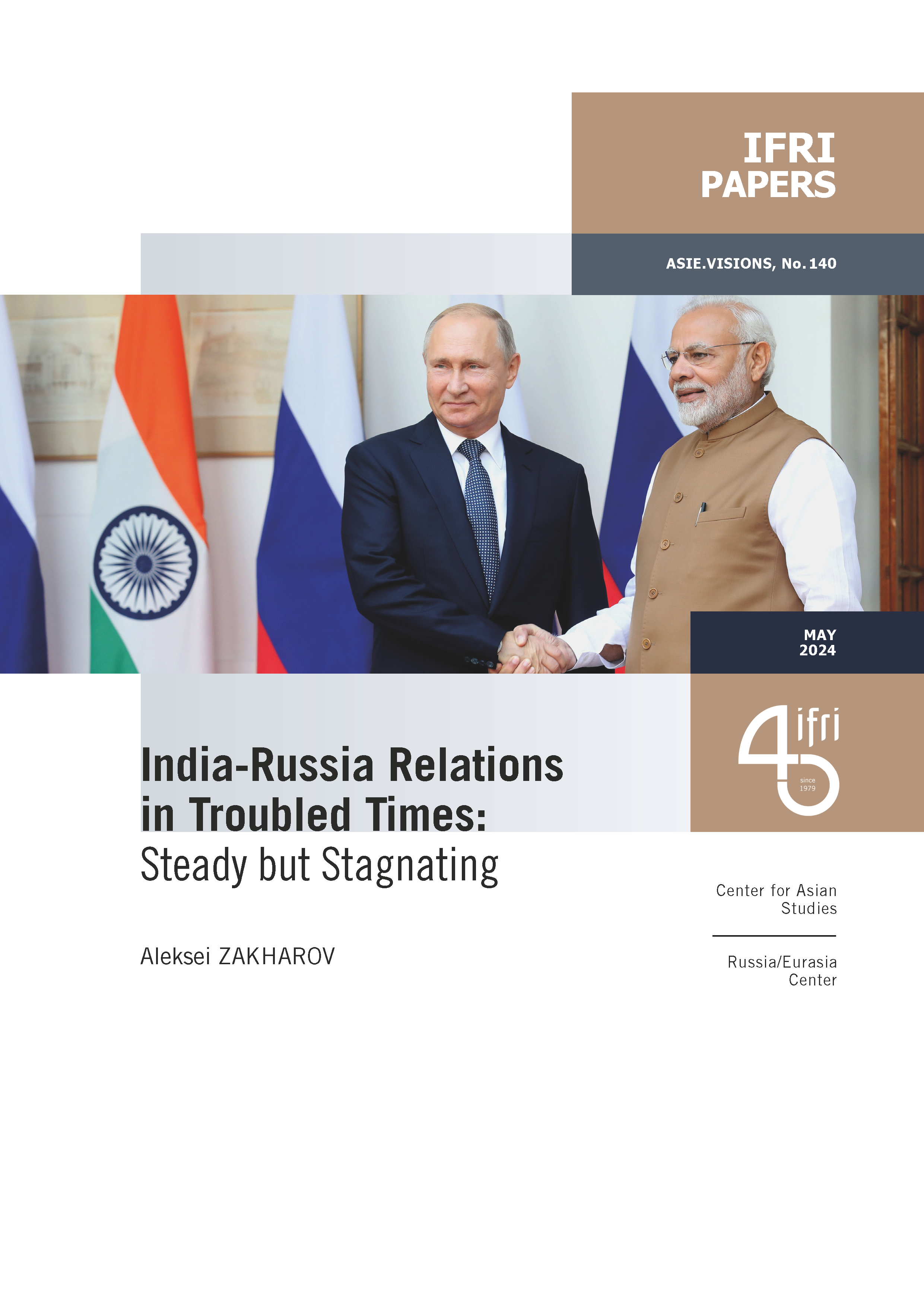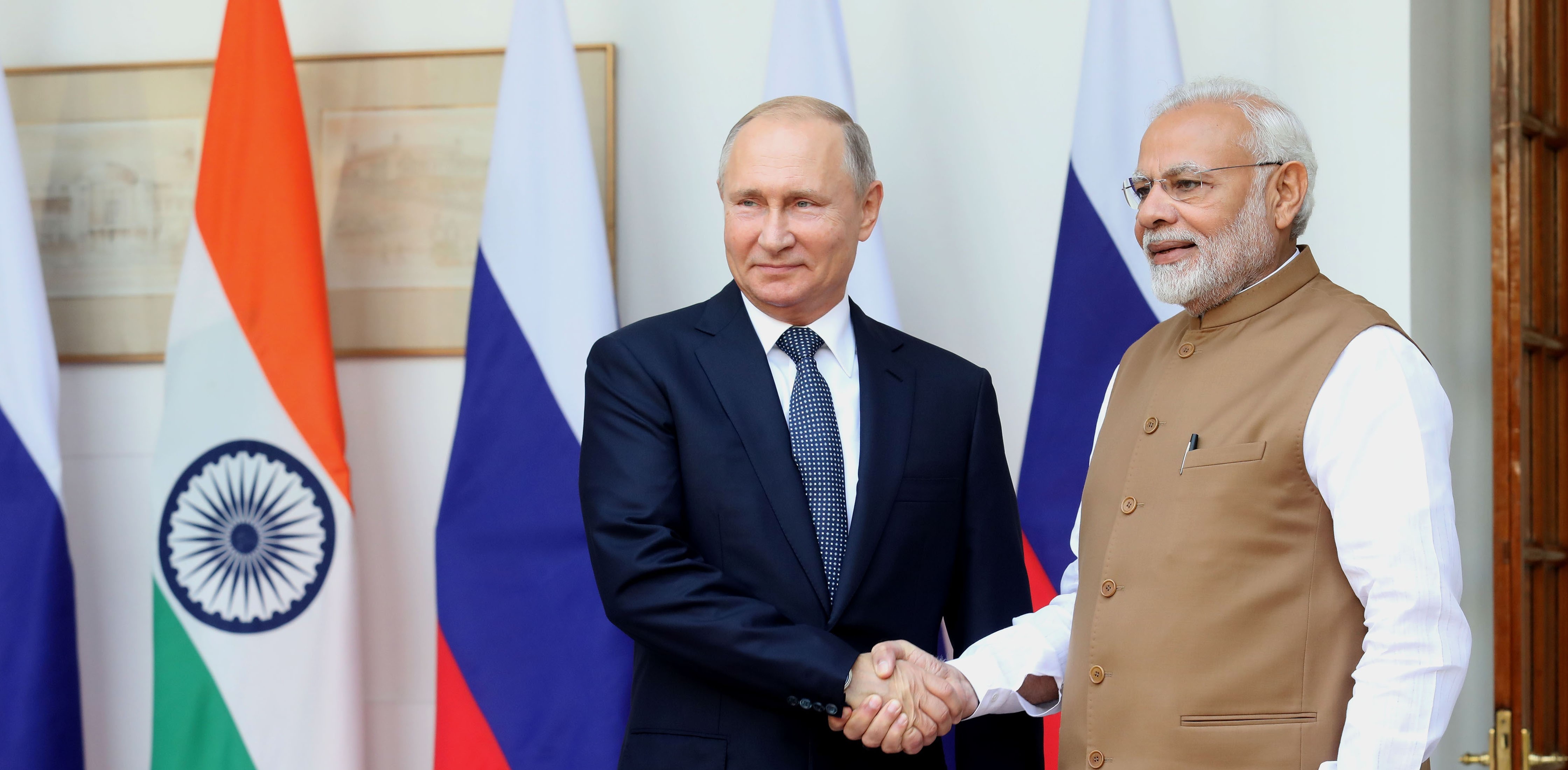India-Russia Relations in Troubled Times: Steady but Stagnating

This paper examines the trajectory of India-Russia relations post-February 2022. The war in Ukraine emerged as a significant challenge for bilateral ties, presenting new obstacles to political and diplomatic relations and intensifying the previous difficulties in developing economic cooperation.

Moscow and New Delhi have demonstrated divergent approaches to the advancement of their strategic partnership. While Russia has rushed into reinventing the old friendship with India, the latter has acted with greater discretion.
New Delhi has demonstrated a nuanced approach to navigating the Russia-Ukraine conflict, staying on good terms with Moscow and the West. India’s record imports of Russian crude and other commodities, at times in defiance of Western sanctions, have allowed for a considerable boost in bilateral trade. While this “oil connection” may benefit both the Indian and Russian economies, it should not be misperceived as a leap forward in partnership.
The structural challenges appear to still prevent the two sides from reinvigorating the economic ties. Furthermore, their geopolitical understanding is waning, and their defense cooperation is currently in a state of limbo. As long as the war in Ukraine persists, India seems to be prioritizing maintaining the status quo in its relationship with Russia over pursuing new initiatives. This may help to prevent the two sides from drifting apart too far in the near term but is unlikely to lead to any substantive progress in their relationship.

Available in:
Regions and themes
ISBN / ISSN
Share
Download the full analysis
This page contains only a summary of our work. If you would like to have access to all the information from our research on the subject, you can download the full version in PDF format.
India-Russia Relations in Troubled Times: Steady but Stagnating
Related centers and programs
Discover our other research centers and programsFind out more
Discover all our analyses
China’s Strategy Toward Pacific Island countries: Countering Taiwan and Western Influence
Over the past decade, China has deployed a diplomatic strategy toward the Pacific Island Countries (PICs). This strategy pursues two main objectives: countering Taiwan's diplomatic influence in the region and countering the influence of liberal democracies in what Beijing refers to as the "Global South."

Opening up the G7 to South Korea to Address Contemporary Global Challenges
The G7’s global influence has diminished as powers like China reshape international governance through initiatives such as BRICS and the Shanghai Cooperation Organisation (SCO). With the G7 now representing just 10 per cent of the world’s population and 28 per cent of global GDP, its relevance is increasingly questioned.
Expanding SPDMM as a pivotal institution in the Pacific – A French perspective
The South Pacific Defence Ministers’ Meeting (SPDMM) is the only forum that brings together defense ministers from the wider South Pacific — including Chile, which is hosting it for the first time. This heterogeneous group of countries with varying resources, capacities, and interests — Australia, Chile, Fiji, France, New Zealand, Papua New Guinea (PNG), and Tonga — are united by their shared determination to strengthen cooperation on maritime security and humanitarian assistance and disaster relief (HADR) activities.
EU’s Derisking From China: A Daunting Task
With economic security as a major concern, the EU has recently turned to “derisking” from China. The EU strategy entails reducing critical dependencies and vulnerabilities, including in EU supply chains, and diversifying where necessary, while recognizing the importance and need to maintain open channels of communication.








